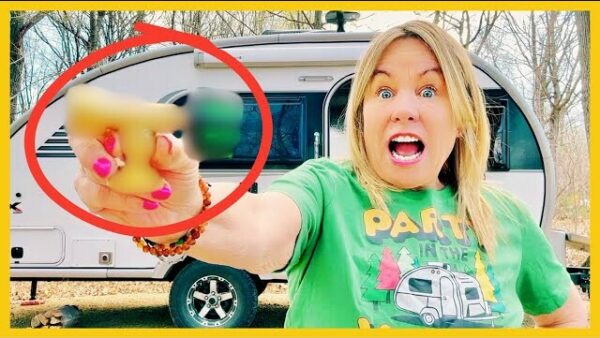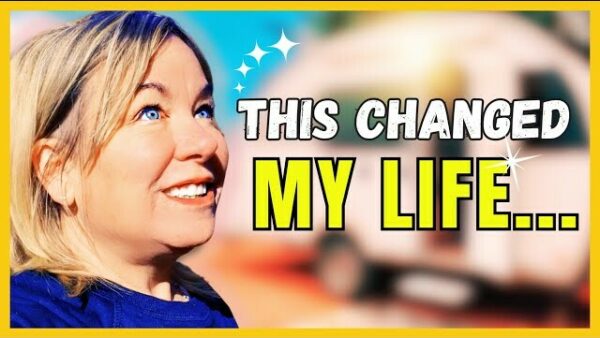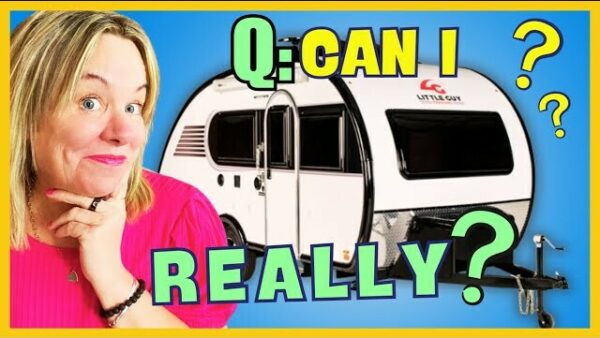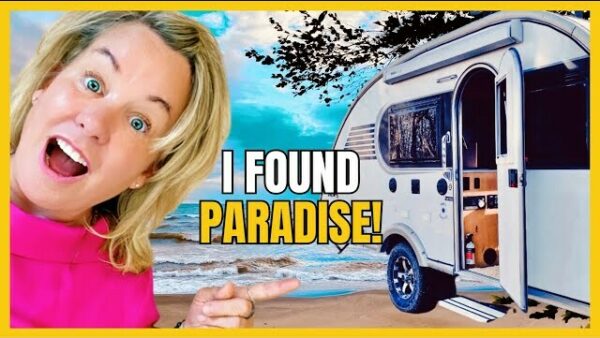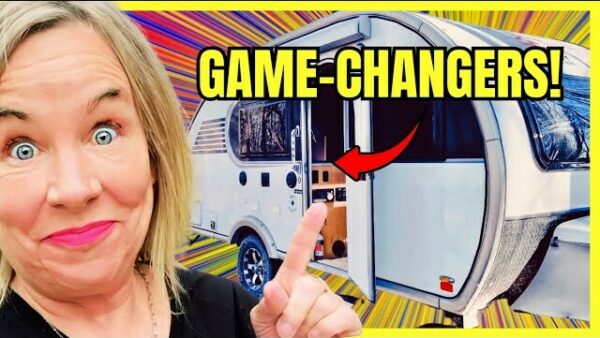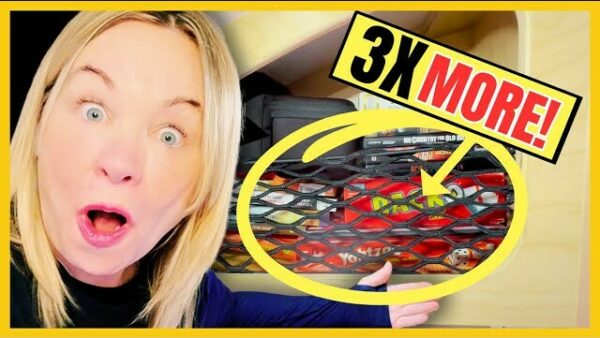99% of the time my small RV the Little Guy Max is the tiniest RV at the campground. It is an 18’ teardrop trailer and I love it. But being in the minority made me curious. Is a bigger RV better than a small RV? What are the pros and cons of owning a large RV? What advantages do small camper trailers have over big ones?
To find the answer I asked the owner of a 37’ Cougar RV to share their RV camping experiences so I could compare the difference between a small RV and a big RV.
Small RV and Big RV Pros and Cons
These are the top pros and cons to owning a small RV versus a big RV.
1. Hanging Out Space
Small RV: Because there is not a lot of hanging out space in a small RV most hanging out time is spent doing things outdoors. However, when it is raining, or we are spending time inside we are typically spending this time sitting at the dinette table.
Big RV: A big RV has much more hanging out space than a smaller RV. They have enough room for a couch, lounge chairs, larger dining tables to comfortably accommodate more people.
2. Kitchens
Small RV: Small RVs do have kitchens and they typically have a 2 – 4 burner stovetops, a sink, and a refrigerator. When preparing meals there is only space for one person to be standing in the kitchen area at a time.
Big RV: Big RVs have generous kitchen space so there can be more than one person in the kitchen area at one time. Often the kitchen also includes an island for additional counter space and storage.
3. Bedrooms
Small RV: A small RV typically has one bedroom area with a full or queen size bed. They may also have a dinette that converts to an additional single sleeping space.
Big RV: A big RV has 2 bedrooms including a master bedroom with a walk-around bed. The second bedroom may also include bunk beds ideal for RVing with children.
4. Bathrooms
Small RV: A small RV typically has a wet bath which means it doesn’t have a separate shower but rather the shower and toilet are all in the same space.
Big RV: A big RV has 2 bathrooms and one of them has a full shower. The main bathroom can be reached from both the living area and the master bedroom. The second bathroom is smaller and can also be reached from the outside of the RV.
4. Interior Storage
Small RV: The layout of a small RV will determine how much interior storage space it will have. There might be storage under benches, or above the refrigerator. Most people might be surprised to find large pantries in these small spaces.
Big RV: Big RVS has an abundance of interior storage space including one or two pantries and closet space to hang clothes.
5. Exterior Storage
Small RV: A small RV typically has one outdoor storage space. Depending on the RV model this storage area may extend the full width of the unit making it more spacious to hold more gear.
Big RV: A big RV will have a couple of outdoor storage areas and one of these is a full pass-through meaning it can be accessed from both sides of the RV providing generous storage space.
6. Setup and Teardown Process
Small RV: Small RVs do not typically have auto levelers therefore leveling is done manually using leveling blocks.
Big RV: Many big RVs are equipped with auto levelers that make leveling easier and the leveling process takes less time.
7. Maneuverability
Small RV: Maneuvering a small RV is much easy than a large RV. Doing things like pulling into gas stations is usually not a big deal.
Big RV: Maneuvering a big RV takes more patience than with a smaller RV because of its size. Pulling into gas stations can be more difficult to maneuver the RV around the pumps, overhangs, and other vehicles.
8. Towing
Small RV: Because the length is shorter, towing a small RV is easier than towing a large RV for people who have never towed an RV before.
Big RV: Towing a big RV takes practice for someone who has never towed an RV before. They need to learn how to switch lanes with an RV extended behind their tow vehicle and get used to slowing down much earlier.
9. Finding Campsites
Small RV: All National and State Park campsites can accommodate small RVs. Having a small RV is an advantage over a larger RV because they are not limited to finding extra large campsites.
Big RV: Finding a campsite that will accommodate a big RV can be challenging because there are fewer campgrounds that offer campsites large enough for the RV to fit on.
10. Boondocking
Small RV: With a smaller RV comes smaller tanks sizes so you cannot boondock for weeks at a time without having to refill the freshwater tank and dump the grey and black tanks.
Big RV: A big RV has big freshwater, grey, and black holding tanks so people can boondock for typically one or two weeks before they need to refill their freshwater tank and empty their grey and black tanks.

